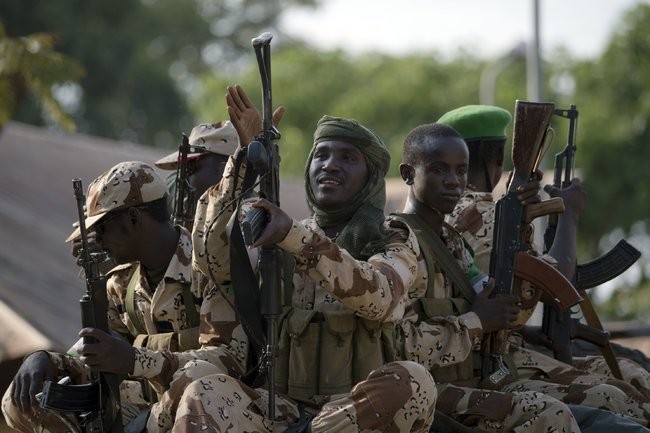Chad’s Political Unrest Spells Trouble for France and the Sahel Countries


Welcome back to the Vault.
This week, we are looking at the political unrest in Chad and what it could mean for other countries in the Sahel, as well as international partners like France. We also examine potential reasons for the ECOWAS U-turn on Niger and highlight a few other issues we think you should know about.
Feel free to share your thoughts with us, check out our website for the latest policies, and let us know if you need any insight on public policies, regulations, and guidelines in Africa.

General Mahamat Idris Deby took power close to three years ago, following the death of his father, a long-term President, who died in a battle with rebel forces. Mahamat’s ascent to power was marked by controversy and crisis, which remain the case until today.
Despite several constitutional reforms, and a referendum allowing for local representation in government, a crisis persists over the new constitution as the opposition demands for greater decentralization of government powers.
Given France’s transition to persona non grata across West Africa, particularly with new military regimes in Burkina Faso, Mali, and Niger, their relationship with Chad has become a much higher priority.
But France won’t be the only country watching the situation as it develops. Chad serves as the headquarters of the Sahel’s regional counter-terrorism task force, making stability crucial in the lead-up to the elections. The conflict in Chad could exacerbate the refugee crisis in the region, already worsened by the Sudan crisis, a situation that extremist groups could try to use to their benefit.

The Economic Community of West African States (ECOWAS) recently announced the lifting of sanctions imposed on Niger since July 2023. This marks the end of a seven-month period during which all commercial and financial transactions between ECOWAS member states and Niger were suspended. The sanctions included the closure of land and air borders, freezing of assets in member states and a halt to the supply of electricity by Nigeria to Niger.
The shock decision came a month after the country and its two junta-led neighbors – Mali and Burkina Faso – announced their withdrawal from the West African bloc. The group also created a mutual defense pact ‘Alliance of Sahel States’ to counter enemies amid threatened military intervention by ECOWAS, which never materialized.
Why remove sanctions now?
ECOWAS says it lifted the sanctions on purely humanitarian grounds i.e. to ease suffering but other underlying factors (mentioned below) may have influenced the decision.
In short, removal of the sanctions indicates a change in ECOWAS posture, shifting to a more diplomatic stance and a willingness to dialogue after months of stalemate with the junta-led governments across the region.
The South African budget deficit is anticipated to rise from 4% in 2023/24 to 4.9% of GDP in 2024/25. Essential points from the recently disclosed budget are as follows:

What policy and insight do you seek?
Whether you are a government official, civil society organization, or researcher, our repository provides comprehensive access to public policies, regulations, and guidelines across Africa. We provide insights and intelligence on these regional policies and regulations for research, advocacy, policymaking, and investing.
Get in touch with us here: <mailto:team@policyvault.africa>.

We’re also tracking the latest current events in the news, and how they may affect the decisions of policymakers. Below are some of the latest developments.
Zambia| Authorities declare national emergency over drought
Last Thursday, Zambian President Hakainde Hichilema declared the drought being experienced as a national disaster and emergency, emphasizing its devastating effects on food production and power generation. The Southern African country is grappling with the aftermath of a cholera epidemic and facing challenging weather conditions, which are partly caused by climate change.
Nigeria | Central Bank withdraws licenses of 4,173 Bureau De Change (BDC) operators
Last week, the Central Bank of Nigeria announced that it has revoked the operating licenses of over 4000 Bureau De Change (BDC) operators due to their failure to observe regulatory provisions. These include non-payment of necessary fees, failure to meet reporting requirements outlined in the guidelines, and non-compliance with regulations such as Anti-Money Laundering, Countering the Financing of Terrorism, and Counter-Proliferation Financing regulations.
Visit www.policyvault.africato check some of our recently published insights, which provide you with deeper analysis and context of matters at the intersection of public policy and current events.